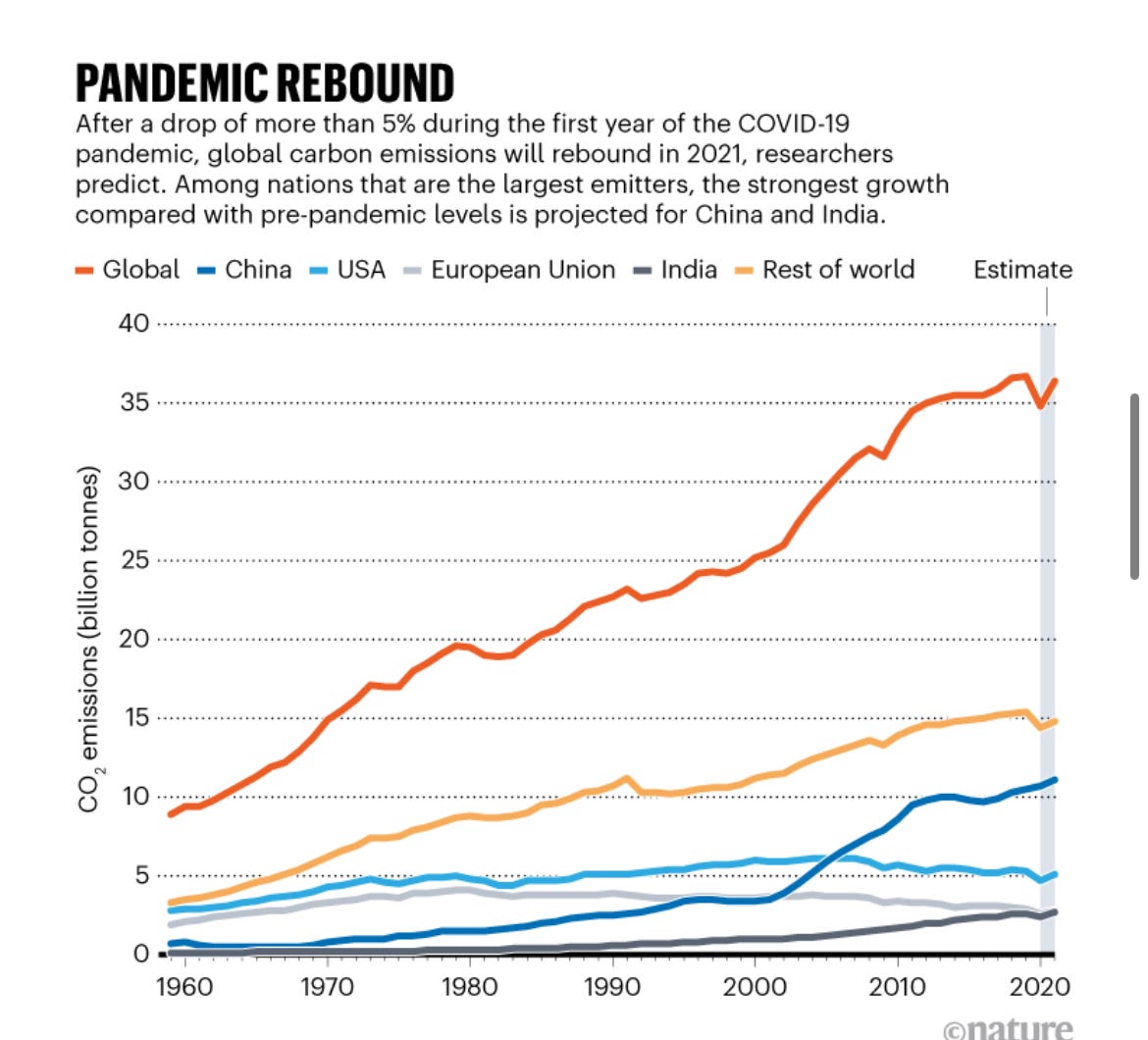But even before World Minister for Energy Policy Greta Thunberg banged her shoe against a desk at the United Nations in 2019, the Europeans were getting very worried about carbon dioxide.
A reminder: CO2 is what you get when you burn hydrocarbons like coal or oil.
Let’s look at this chart of carbon emissions over the last 60 years. Look how much the Europeans emit! It’s the light grey line. The one that’s dropping. No, look lower. Near the bottom. Yeah. That one –
That’s right.
The entire European Union now emits less carbon than India and about one-third as much as China. In fact, if every American and European stopped emitting carbon entirely and went back to living in caves, the world as a whole would still produce more carbon dioxide now than it did 20 years ago.
Weirdly, they also don’t like nuclear energy. It emits zero carbon, but it’s mean to the uranium atoms or something, I dunno. In any case, Germany – Europe’s biggest economy – closed three nuclear plants in December and will close the three it has left before the end of 2022.
Which means that Europe has (intentionally) left itself increasingly dependent on the remaining two forms of energy, natural gas and renewables, to make electricity.
Thus pipelines are the preferred way to move natural gas. Pipelines over land, or under water (but not oceans). Pipelines from a country reasonably close by.
Lucky for Europe, Russia has natural gas to spare. It provides about 35 percent of all of Europe’s natural gas, and that figure was about to increase as a new pipeline called Nord Stream 2 opened up.
35 percent is a lot – especially when your customers have gone out of their way to increase their dependence on you. Europe simply has no substitute for Russian natural gas in the short- or medium-term – meaning not months but years.
The Russians have already taken advantage of this fact. Since last year they have undersupplied their European customers. Natural gas prices have soared. Now electricity prices are about to follow them far higher.

No comments:
Post a Comment